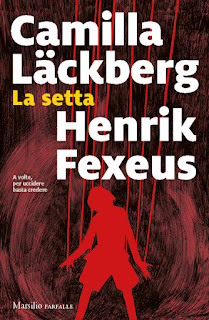Senza Respiro
by David Quammen published by Adelphi is dedicated to the relatives of people passed away because of the pandemic.
Written in a captivating style, it's, for sure an unputtable down book in particular if you are interested in the topic: viruses, first of all, and yes, Covid-19, and then research: you will understand reading this book, that the reconstruction of a virus's genesis is complicated and fascinating: that sometimes is necessary to travel in the most diversified corners of the world, forests, deserts, capturing segments of poo, pee or just blood of wild animals for later in laboratory trying to see which answers that animals can give. Risking the existences.
Reading the genomic version of Covid-19 meant real panic, because, understandably, scientists understood that yes, this one potentially could become a new pandemic: certain weird segments of the sequence meant to scientists online meetings: yes the famous theory of the virus escaped from a laboratory in China was taken in consideration and...
No, the story was more simple: there was a natural spillover: pangolins helped the spillover probably, but no one can say the final word. Sure, where, and when this spillover became more cruent and didn't abandon anymore the body of humans is still unclear. Of course we know that the first outbreak, largely known where everything officially started was Wuhan, China and in the market of Huanan but...
What appeared clear later was that the virus circulated silently without that the humanity knew anything of it, from fall 2019 before to become officially, notoriously known: it circulated not just in China, but also in Italy, France etc. Scientists, doctors, people working in laboratories understood it more clearly when, with the discovery of the pandemic, decided to repeat some tests that they had kept jealously in laboratory on patients passed to the hospital months before, and where it was impossible to establish a real diagnosys, discovering that some of them were sick with Covid in fall 2019.
There is an historical reconstruction of what various countries decided to do during the pandemic: the first european country involved in the pandemic was Italy: the first wave of Covid caused more or less 34.000 victims.
In the UK with Boris Johnson like also in Brazil with Bolsonaro and in the USA with Donald Trump, Covid was treated as an absent problem. In the USA because of economy, in the UK because they wanted to reach a heard himmunity: someone in an interview clarified that they were searching for it. Oh my, but departures will be a lot, replied the journalist. The politician: yes this one is a bad illness....Bolsonaro didn't suggest any kind of measures and Covid, as it happened in UK as well, happily created, thanks to its frenetic work in bodies a new variant!
According to the british politician the 60% of population had to fall sick and then voilà! the herd himmunity.
Follow the chapters where the author reveals why the research of this method is not a solution to the problem. There is an interesting story behind herd himmunity. And, anyway, being a virus with the capacity of mutation, you can catch it several times. So a herd himmunity shouldn't be researched also for this reason.
Follow also the explanation of what Coronaviruses are in comparison to other viruses taken in consideration and why they are so temibles.
Viruses are indispensibles for our existence, affirms David and it is not possible an existence without them. Their birth is suggestive, you will discover it.
But...Where are we now with the pandemic?
The most scaring mutation although less dangerous than the previous ones (and these next months we are ready for other variants) is from South Africa: Omicron.
What will happen of Covid? It won't disappear anymore, writes Quammen: we have deleted from the Humanity perils like smallpox, but it won't be possible to do the same with this virus and we still can't say what it will become affirms Quammen. The trasmissibility is not just human. This virus interacts well with animals as well.
An example? The cutest one!
Pagani, a young researcher of tropical illnesses, 30 years, changed his existence, preferring to stay in loco thanks to the suggestion of Massimo Gallo an estimated professor of the Sacco of Milan. During the first pandemic wave, so, while he was testing people, catched Covid, and the other one who fell sick with him was not his girlfriend or parents but his lovely cat Zika. Yes, he called the cat Zika! He discovered that the animal sneezed frequently: they both were tested and they had the same Covid-19, equal at the 99% of the genomic sequence.
As you can see it will be difficult a complete disappearance of Covid-19. Covid-19 is in love with several mammals. How can we defeat it? It's not possible.
Beautiful book, written with great clarity. If you know someone interested in the topic, it's a perfect Christmas gift because well documented: first-hand interviews with the biggest names of the scientific field are punctuals. Accuracy is researched everywhwere and every passage explained with competence.
Anna Maria Polidori

.jpg)

.jpg)


.jpg)
.jpg)







.jpg)


